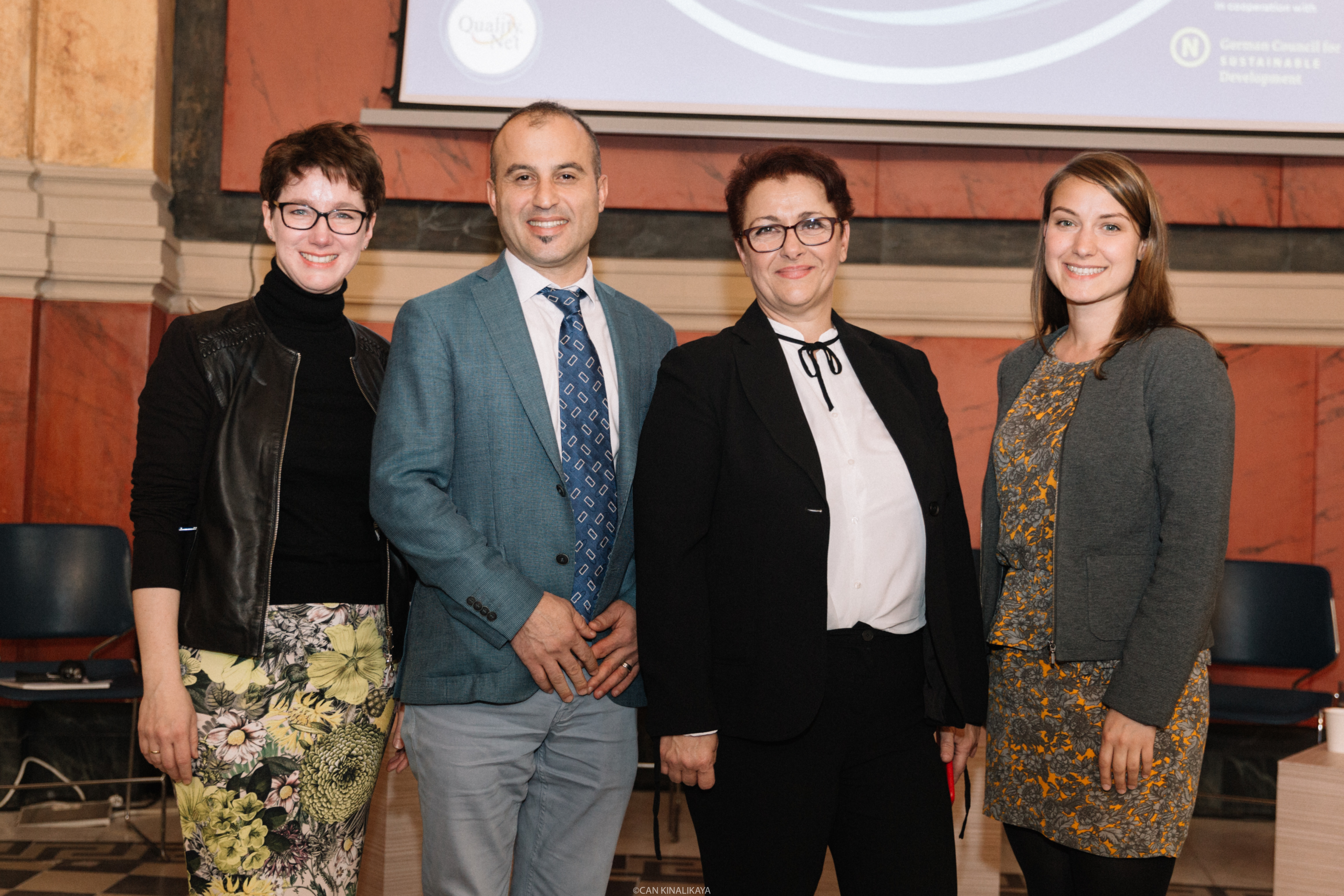
Different countries, common objectives (left to right): Yvonne Zwick (Deputy Secretary General RNE and head of the Sustainability Code), Hüdai Kara (Director Turkish Sustainability Code), Chrysoula Exarchou (CEO QualityNet Foundation & Head of the Greek Code), Julia Graner (Project Manager, Turkish Sustainability Code), Foto: Can Kinalikaya
Athens, 9th April 2019 – Turkey is about to become the third country with a national Sustainability Code. The Turkish Sustainability Code, the result of a cooperation between the Sustainability Code and the Turkish Center for Sustainable Production Research and Design (SÜRATAM), was announced at the Sustainability Outlook 2019 conference in Athens on 5th April 2019. Dr. Hüdai Kara and Julia Graner, Director and Manager of the Turkish Sustainability Code project, respectively, attended the conference to represent SÜRATAM.
The Sustainability Code, a reporting standard introduced by the German Council for Sustainable Development (RNE) in 2010, is open to independent, country-specific adaptations. According to the RNE, further EU and global parties are interested in the experiences with the Sustainability Code and its options for national adoption along with Turkey who is at an advanced stage of adaption and implementation.
The Sustainability Code and SÜRATAM agreed to cooperate on an adaption of the Sustainability Code at the end of 2018. Currently the Turkish Sustainability Code is at a stage of consultation with stakeholders and work on an adaption of some of the criteria to the local conditions. Relevant stakeholders and actors identified are academia, local and multinational companies, business associations, chambers of commerce, as well as civil society and consultants. The most important activities include networking to interlink relevant aforementioned actors in the development of the Code and researching further cooperation opportunities. Some important milestones including the Turkish translation of the Code and a bilingual web presence have been achieved. The Turkish Sustainability Code team is based in the offices of SÜRATAM and makes use of SÜRATAM’s members and extensive industrial network to further raise awareness of sustainability topics in all sectors and industries.
“The cooperation is a milestone for sustainability reporting in Turkey, where sustainability reporting is voluntary and at a comparatively low level. The Turkish Sustainability Code will serve local companies from small to large as a tool for transparency and assessment on sustainability. The introduction may even lay the foundation for a Code-inspired sustainability index of listed companies based on accepted KPIs and metrics.” says Dr. Kara, a member of the board at SÜRATAM and Director of the Turkish Sustainability Code.
The partnership between the Code and SÜRATAM shows that the contents of the Code are cross-border relevant and applicable. A look at the widely varying standards of sustainability reporting and the growing interest in standardization underlines that an instrument such as the Code, which focuses on materiality, commitment and transparency, can offer a good and feasible option to internationally promote sustainable business practices.
Commenting on the announcement, Yvonne Zwick, Head of the Sustainability Code Office and Deputy Secretary General at the German Council for Sustainable Development noted: “The team in Turkey is laying the foundation to kick start the disclosure of sustainability efforts from companies of all sizes in Turkey. We are delighted to witness the announcement of the Turkish Sustainability Code and welcome them to the Code family.”